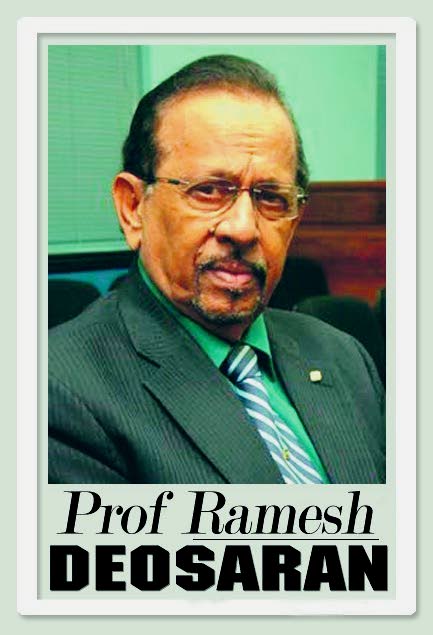Racial distrust

Distrust is defined as “having no trust or confidence in; suspicious.” Every reputable poll conducted in this country has revealed sharp differences of political opinion between the country’s two largest racial groups – those of African descent and those of East Indian descent.
When I conducted regular public opinion polls at The UWI – whether on crime, politics, education or health – the most discrete division in the results was the racial divide. (Pop: Indians 35.4%, Africans 34.2%, mixed 23%, Others and unspecified 9%.) It was and still is a nation divided. The sharply divided approval of PM Dr Keith Rowley as revealed last week by the Express poll (sample size 420) should not be surprising (Africans 79%, Indians 23%).
These divergent racial perceptions are energised by each racial group persistently feeling itself, in varying degrees, relatively deprived of economic opportunity and social status. Will the society continue to live this way? With the spite and acrimony between?
Hoping for some healing and example, last February this column asked Dr Rowley to consult with Opposition Leader Kamla Persad-Bissessar on the new issues from Caricom and the impending refugee challenges from Venezuela. The column was hopefully headlined, Dr Rowley, talk to Kamla. It needs more than this but enlightened leadership has a moral responsibility to provide remedy.
With political questions, it is helpful to first ask respondents which political party they support. The African vs Indian divide will start from there, followed by the divergence of racial perceptions on leadership, politics and social and economic conditions. Increased attention must now be placed on the views of our douglas and LBGT groups. Tobago too.
The published results showed, for example, confidence in crime as a crisis (African 26% vs Indian 77%), the economy in crisis (African 12% vs Indian 74%), confidence in police (African 41% vs Indian 20%), confidence in government (African 56% vs Indian 9%), confidence in the (African 67% vs Indian 26%), confidence in refugee policy (African 66% vs Indian 34 %) – clearly a party-based racial divide.
Last week’s results also showed around 80% felt that crime, the economy and corruption were either “in crisis, or a major or minor problem.” However, the African vs Indian differences within that proportion will tell a fuller story.
Five issues here:
(1) In forming the People’s National Movement (PNM) towards and after 1956, Dr Eric Williams’s historical analysis of British imperialism, colonial oppression and racial discrimination had positive appeal for Africans. The 1956 elections helped expose the racial divide. It was brewed on the plantation, became compounded with social class toward and after adult franchise in 1945, then formally expressed in 1956 and moreso in 1961 elections.
(2) This independent country was born out of mistrust. At the London talks for independence in 1962, the Opposition Democratic Labour Party (DLP) led by Dr Rudranath Capildeo raised serious questions of distrust in the People’s National Movement government led by Dr Eric Williams. There were questions of trust in the police, appointments to the public service, etc. An adjournment was taken to have both parties settle differences. The distrust has now become mutual.
(3) Dr Capildeo’s 1961 DLP was fundamentally Indian-based and Dr Williams’s PNM was fundamentally African-based. The racial divide grew in acrimony during and after the 1961 general elections with the Indians, though split within their political ranks, promoting Dr Capildeo as an intellectual challenger to Dr Williams. That 1961 election is recorded as the most racially divisive.
(4) The 1986 elections contained a thesis that if opposition parties (African and Indian) become united, the PNM would be defeated. Indeed, the PNM lost to the National Alliance for Reconstruction (NAR) 33-3. However, the NAR soon cracked under weight of its internal racial divide. Getting together for elections may be politically convenient but not racially sustainable.
(5) The universal fact is that a person or group’s ethnic identity is buried deeply in the soul, latently resting in the subconscious, sometimes compromising for material benefit or psychological comfort, but easily resistant to threats. This is the experience of multi-racial societies around the world. It is the perpetual struggle to shape a unified nation with common secular purpose from various racial groups. Maybe this will always be a work in progress, especially in inherently divisive democracies.

Comments
"Racial distrust"